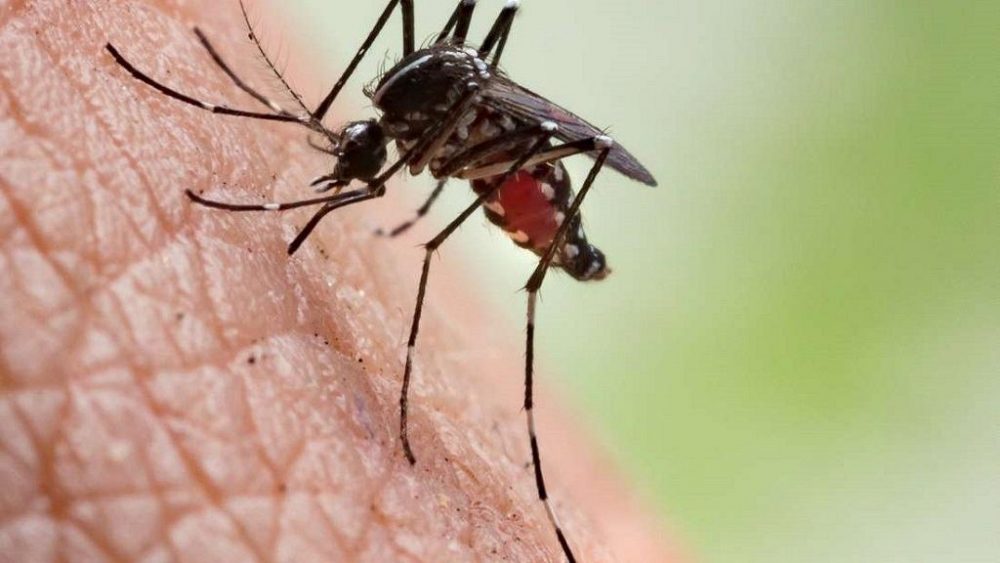Every year on April 25th, countries and organizations around the world celebrate World Malaria Day to raise awareness of the impact of malaria and to support efforts to combat the disease. This year’s theme is “Time to deliver zero malaria: invest, innovate, implement,” with a particular focus on reaching marginalized communities with effective malaria control measures.
The World Malaria Report published by the World Health Organization (WHO) shows that the WHO African Region bears a high percentage of the global malaria burden, with Nigeria having the highest burden in the world. In 2022, Africa was home to approximately 95% of all malaria cases and 96% of deaths, with children under the age of five accounting for 80% of all malaria deaths. Four African countries, including Nigeria, accounted for over half of all malaria deaths worldwide. Nigeria alone accounted for 31.3% of global malaria deaths, followed by the Democratic Republic of the Congo (12.6%), the United Republic of Tanzania (4.1%), and Niger (3.9%).
In Nigeria, malaria remains a significant public health challenge, with an estimated 97 million cases and 300,000 deaths annually. Although progress has been made in reducing the burden of this disease, much work still needs to be done to eliminate it.
The government and various non-governmental organizations have made significant efforts to tackle malaria, including the distribution of insecticide-treated bed nets, indoor residual spraying, and improved access to effective antimalarial drugs. However, these interventions face significant challenges, including inadequate funding, weak health systems, and resistance to antimalarial drugs and insecticides.
In recent years, international donors have increased their support for malaria control programs in many countries, including Nigeria. However, funding for malaria control is still insufficient to meet global targets for its elimination. Thus, there is a need for sustained investment in malaria control and research, with a focus on increasing domestic financing for malaria programs and reducing dependence on international donors. With Nigeria having the highest cases of malaria in the world, the government must prioritize funding for malaria programs and work towards sustainable financing mechanisms. This will ensure that malaria interventions are adequately funded and implemented, reducing the burden of the disease on the most vulnerable communities.
Innovation has been a key driver of progress in the fight against malaria. Innovative approaches, such as the development of new antimalarial drugs, insecticides & vaccines, and larvae control of the malaria parasite, have contributed significantly to reducing the burden of malaria in many parts of the world. However, there is still a need for more innovative solutions to tackle the remaining challenges in malaria control. This includes the development of new vector control tools, such as long-lasting insecticidal nets that are resistant to insecticide resistance, as well as the use of new diagnostic tools and treatments to improve the accuracy and speed of malaria diagnosis and treatment.
The approval of the R21 malaria vaccine could be a game-changer in the fight against malaria and in the delivery of the WHO zero malaria mandate. The R21 vaccine has shown promising results in clinical trials, with studies indicating that it can reduce malaria cases by up to 77% in children under the age of five. The implementation of the R21 vaccine could significantly reduce the burden of malaria on the most vulnerable populations and contribute to the elimination of the disease in the country. However, the successful implementation of the vaccine will require sustained investment and strong partnerships between the government, international donors, and other stakeholders.
Furthermore, the fight against malaria must also include improved access to diagnosis and treatment. Early diagnosis and prompt treatment are critical to reducing the severity of the disease and preventing deaths. Community-based approaches such as community health workers and mobile clinics can help expand access to malaria diagnosis and treatment, especially in rural areas. Efforts should also be made to improve on community based sanitation routine to eliminate breeding sites in clogged open gutters. Effective partnerships are also critical to accelerating progress towards malaria elimination.
The government must work with civil society organizations that are willing to support the fight against malaria, especially in the rural areas of Nigeria. Stakeholders and government organizations at the forefront of malaria elimination should also bear in mind that its elimination does not require a complete absence of malaria cases in the country, as imported cases will continue to be detected due to international travel and may, on occasion, lead to the occurrence of introduced cases in the country.
In conclusion, reducing the transmission of malaria from highly endemic levels remains the immediate task. Reduced endemic malaria transmission to low levels will mean that malaria does not constitute a major public health burden. As we mark World Malaria Day in 2023, let us recommit ourselves to the fight against malaria and make zero malaria a reality.



